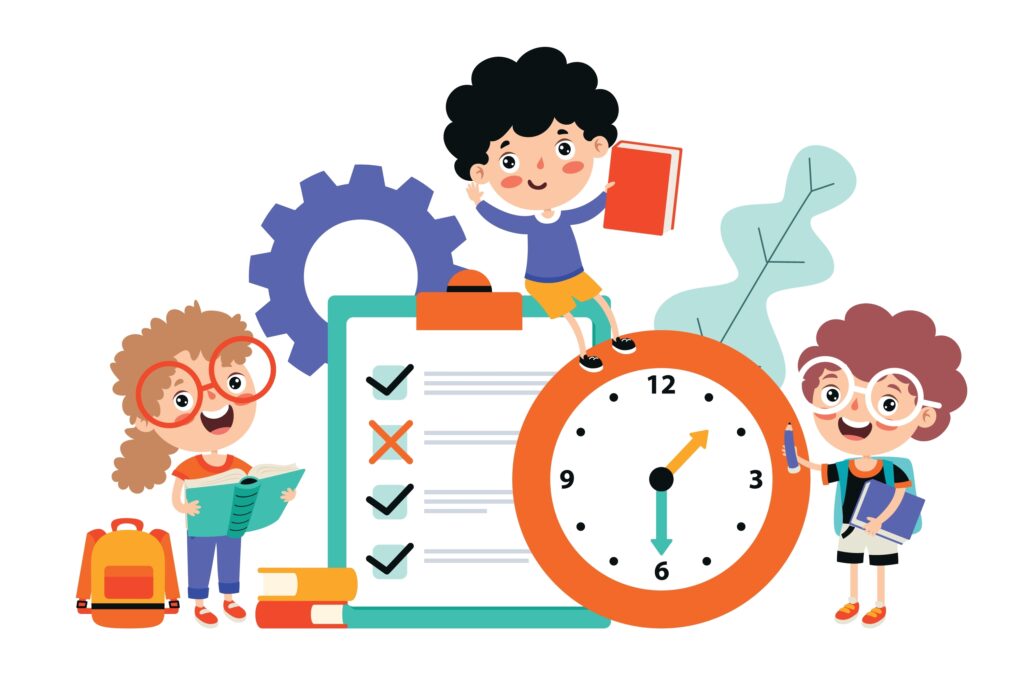The Importance of Routine in Managing Sensory Processing Issues
Sensory processing issues affect how individuals respond to sensory stimuli in the environment, often leading to discomfort or overwhelm when processing sensory information such as sight, sound, touch, taste, and smell. For individuals, particularly children, with sensory processing challenges, establishing a structured daily routine can be instrumental in managing these responses effectively. Routines provide a predictable framework that can minimize the impact of sensory overload and create a sense of security.

Understanding Sensory Processing Issues
Sensory processing disorders occur when sensory signals are either not detected or don’t organize into appropriate responses. This condition can affect one or more senses and varies from mild to severe. Individuals facing these challenges may experience hypersensitivity (over-response) or hyposensitivity (under-response) to sensory stimuli, affecting their ability to function in daily life. Understanding these differences is the first step toward implementing effective strategies, including routines, to help manage sensory processing difficulties.
The Role of Routine
A consistent daily routine plays a critical role in managing sensory processing issues by offering several benefits.
- Predictability and Stability: Routines provide predictability, which is crucial for those with sensory processing issues who often feel overwhelmed by unpredictability in their environment. Knowing what to expect reduces anxiety and makes transitions from one activity to another smoother.
- Sensory Regulation: Routines can incorporate planned sensory activities tailored to an individual’s needs, helping regulate their sensory input throughout the day. For example, scheduled quiet times, movement breaks, or sensory play can help maintain a balanced sensory diet.
- Time Management: Establishing routines helps with time management skills, allowing individuals to allocate time effectively for activities, whether academic, social, or personal. This can be particularly beneficial for those who may otherwise struggle with disorganization due to sensory challenges.
- Building Independence: With a consistent routine, individuals learn to anticipate what comes next, fostering greater independence. They can develop self-management skills and gradually become more confident in navigating their day-to-day activities.
Creating Effective Routines
When developing routines for someone with sensory processing issues, consider the following strategies to enhance effectiveness.
- Personalization: Tailor the routine to fit individual needs and sensitivities. Observe which activities trigger overstimulation or understimulation and adjust the schedule accordingly.
- Visual Schedules: Use visual aids like charts, pictures, or digital apps to represent routines graphically. Visual schedules can help bridge communication gaps and serve as constant, accessible reminders of the day’s structure.
- Visual Schedules: Use visual aids like charts, pictures, or digital apps to represent routines graphically. Visual schedules can help bridge communication gaps and serve as constant, accessible reminders of the day’s structure.
- Flexibility Within Structure: While routines should provide stability, it’s important to retain some flexibility to accommodate necessary changes or unexpected events. This balance ensures that routines are adaptable to the individual’s changing needs.
- Incorporate Breaks: Include regular breaks to help manage overload and allow for sensory decompression. Activities like deep pressure exercises, quiet time, or listening to calming music can serve as relief points.
- Feedback and Adjustment: Routinely gather feedback from the individual about what works and what doesn’t. Modify routines based on their experiences, fostering a collaborative approach to sensory management.
The Role of Caregivers and Educators
Caregivers and educators play a pivotal role in establishing and maintaining effective routines. They are often the ones who can identify patterns, note triggers, and support the implementation of helpful strategies. Communication between all parties involved, including parents, teachers, and therapists, ensures a cohesive approach that meets the individual’s sensory needs across different environments.
- Home Environment: At home, caregivers can create structured routines that incorporate necessary sensory support strategies. Morning and bedtime routines, in particular, can set a positive tone for the day or provide a calming end.
- School Environment: Educators can adapt their classroom management techniques to support structured routines, ensuring that transitions between activities or subjects are smooth and predictable.
- Therapeutic Support: Therapists can assist by advising on appropriate sensory activities to include within routines and providing strategies for effectively handling sensory overwhelm.

The establishment of a routine can transform the day-to-day experiences of individuals with sensory processing issues, guiding them toward improved emotional regulation, increased independence, and enhanced overall well-being. By providing a consistent and predictable environment, routines alleviate anxiety and help manage sensory challenges more effectively. As advocates, caregivers, educators, and specialists work collaboratively to develop tailored routines, they empower individuals with sensory processing issues to navigate the world with greater confidence and ease.
related blogs
When most people think about the senses, the traditional five often come to mind: sight, sound, taste, touch, and smell.
Sensory processing disorder (SPD) often flies under the radar, yet it plays a crucial role in understanding the complexities of
Sensory Processing Disorder (SPD) is a complex condition that manifests in various ways, depending on how individuals process sensory information.
Attention Deficit Hyperactivity Disorder (ADHD) and Sensory Processing Disorder (SPD) are two conditions frequently discussed in pediatric development and mental
Language development is a crucial part of a toddler's growth, and fostering this skill can have lasting impacts on their












 Speech Therapy
Speech Therapy Physical Therapy
Physical Therapy Occupational Therapy
Occupational Therapy

